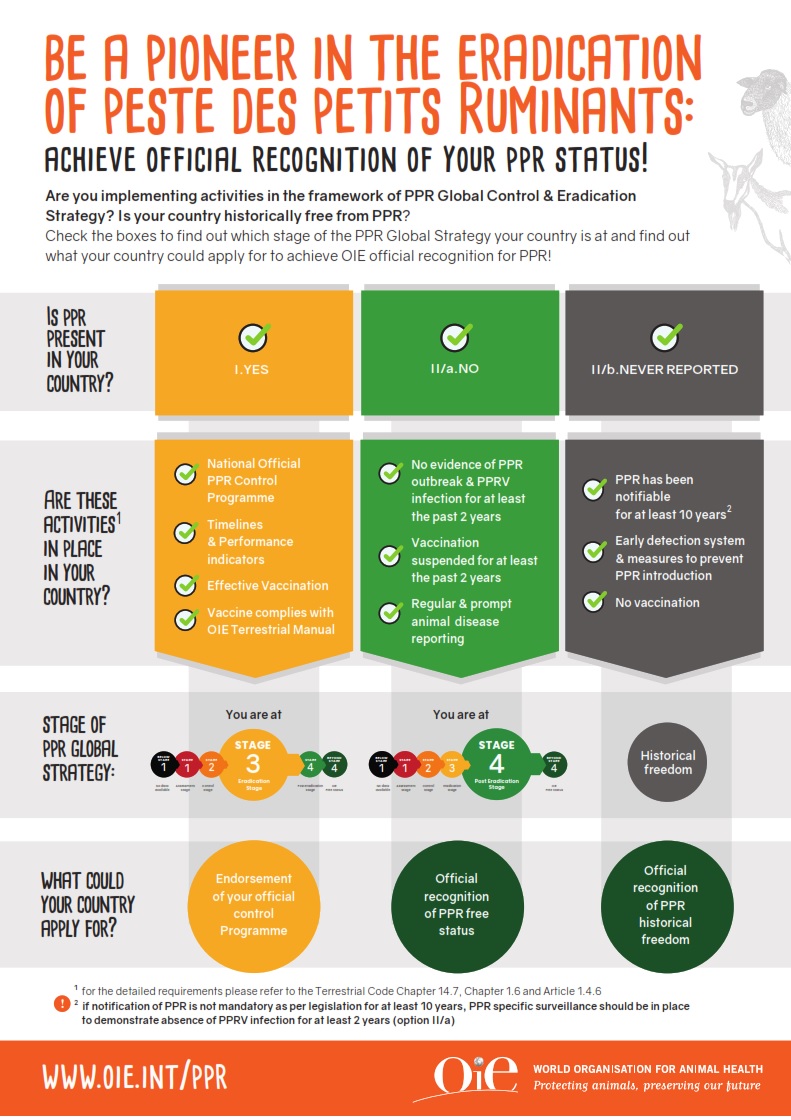Peste des petits ruminants (PPR), an eminent transboundary animal disease (TAD), recognized as a priority disease by the GF-TADs Steering Committee causes high morbidity and mortality.
Peste des petits ruminants (PPR) or sheep and goat plague is an acute viral contagious disease caused by a Morbillivirus belonging to the family of Paramyxoviridae affecting primarily sheep and goats and occasionally other species, including endangered wild populations.
Global strategy for the control and eradication of PPR
In 2015, the WOAH and the Food and Agriculture Organization of the United Nations (FAO) jointly developed the PPR Global Control and Eradication Strategy, with the objective of eradicating PPR from the globe by 2030. The Strategy includes several tools and components to be implemented through a step-wise approach to decreasing levels of epidemiological risk and increasing levels of prevention and control.
The official recognition of disease status of Members is of great significance for international trade and constitutes one of the most important legal links between the WOAH and World Trade Organization (WTO), in the framework of the WTO Agreement on the Application of Sanitary and Phytosanitary Measures (SPS Agreement), which entered into force in 1995.
Granting, suspension, and recovery of official disease status are handled in an objective and transparent manner, governed by the Standard Operating Procedures (SOPs).
Read moreCommunication tools


